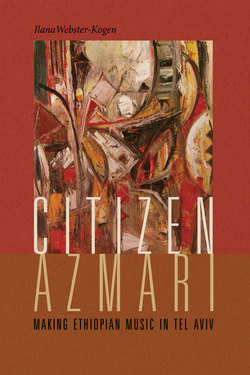Citizen Azmari

Реклама. ООО «ЛитРес», ИНН: 7719571260.
Оглавление
Ilana Webster-Kogen. Citizen Azmari
Отрывок из книги
Citizen Azmari
CITIZEN AZMARI
.....
GREATER TEL AVIV
This book deals with national imaginaries of citizenship, but most of the action takes place in and around Tel Aviv, a city that is at once distinct (politically, religiously) from the rest of the country and representative of it demographically. Initially I spent a year in south Tel Aviv (July 2008 to July 2009), conducting ethnographic research through participant observation there and in many venues around Israel. I spent little time in Rehovot, the suburb that for two decades had the largest Ethiopian-Israeli population, or Tiberias in the Galilee, which has an enormous absorption center (merkaz klita). I spent no time in Kiryat Malakhi, the “development town” (that is, a town created after the establishment of the state in peripheral regions such as the Galilee and the Negev—see Yiftachel and Meir 1998) with a disproportionately large Ethiopian population relative to its size and remoteness. Instead I carried out most of my research in the major urban centers of Tel Aviv, Haifa, and Jerusalem, as well as smaller cities like Ashkelon that are home to significant Ethiopian-Israeli populations. This multisited work, conducted in Hebrew but with use of Amharic words and phrases, highlights the emergence of new immigrant population cores in urban areas. I cover many of the institutions enumerated by Alex Perullo in his conception of a “music economy” (2011) comprising live music venues (nightclubs and Azmari houses, where I attended live music performances several times per week), music vendors (record stores, where I chatted with patrons and employees and increased my knowledge of contemporary music from Addis Ababa), state-run support bodies (absorption and community centers, where I interviewed musicians and social workers and took lessons in the massenqo, the Azmari’s one-stringed fiddle), and musicians themselves (approximately a dozen of whom I cite by name from interviews in this book, and many more of whom I anonymize).
.....